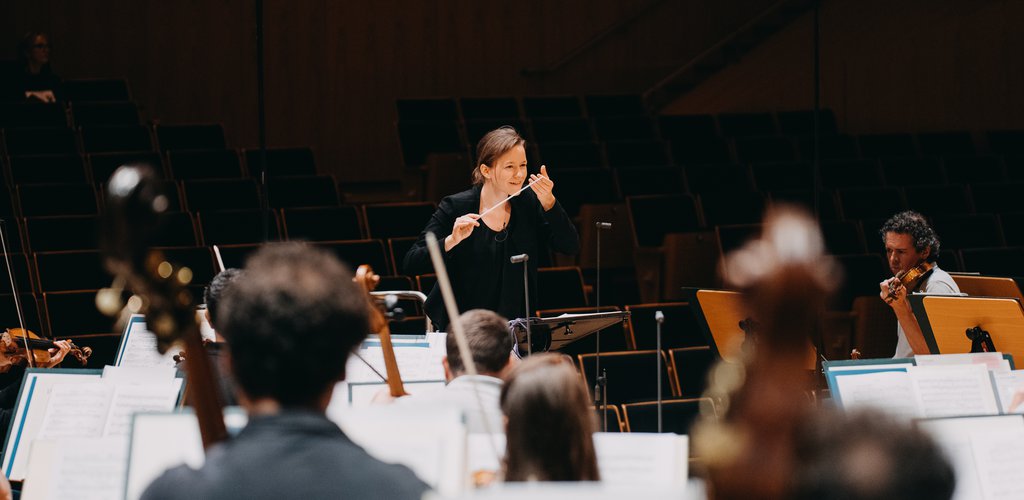The 25-year-old Katharina Wincor is one of the assistant conductors of Iván Fischer and she believes that they have many things in common. She studied orchestral conducting with Johannes Schlaefli and graduated at the Anton Bruckner Academy, the Vienna University of Music and the Zurich University of Arts. Last season she joined the Dallas Symphony Orchestra as an assistant conductor.
You had just come out of the rehearsal of the Dallas Symphony Orchestra in the Meyerson Hall when I called you, how was it?
Katharina Wincor: I think it went really well. Since last season, I am the assistant conductor of the Dallas orchestra. There are two parts of my job. One is to assist the Music Director, Fabio Luisi and all the guest conductors. Apart from that, I conduct all the youth and family concerts, and all the “runouts” when we go to smaller towns outside of Dallas.
How do you, as an extremely young conductor convince the musicians and the audience of your vision in music-making? Besides, in situations like this, being a woman might cause some extra difficulties as well. What are your experiences?
K. W.: I think that the most important thing for any conductor is to know the music really well. Of course, it is a challenge because most of the time the orchestra has already played the piece which is new for me. Therefore, preparation is everything. Every situation is different, though. Sometimes my job is to organize, at other times I might need to give new inspirations to the musicians, or I have to create an atmosphere where I “allow” them to do what they know the best. Some orchestras appreciate that we have discussions in the rehearsals. In this case my job is to create the environment in which we make decisions together.
What is the job of an assistant conductor when working together with a well-known, experienced conductor?
K. W.: An assistant conductor is often called a “cover-conductor” which means, I have to be prepared for the pieces and if the conductor is ill or does not arrive in time for the first rehearsal, I have to be able to jump in. But this happens very rarely, actually it never happened to me. The bigger part is to sit in the rehearsal and to take notes and talk about them with the conductor in the intermissions.
What kind of notes should we think of?
K. W.: First of all, about balance issues, ensemble problems or intonation for example. Those are all things that are not a matter of taste. I write down all my remarks about what needs further rehearsal, or what should be changed.
How do conductors react in general?
K. W.: Some conductors are really very interested and want to know my opinion about their ideas. Others know what they want, and are less dependent on my notes. To say my opinion was somewhat strange in the beginning, but now I am used to it and can also decide in which situation I should say it and when I shouldn’t.
Does it happen that your ideas and advice come alive at the concerts afterwards? Do the conductors build your notes in?
K. W.: That does happen, yes. In Budapest, the orchestra and Iván Fischer were very attentive to what I suggested. Often, also soloists want to know what I hear and how what they are doing comes across in the hall.
I assume this depends on the personality of the conductor as well. And in your case, being a very young female assistant might make your task even more tricky.
K. W.: The fact that I am young probably makes it for some conductors hard to trust me immediately. They need to get to know me a little bit. After a while they know what I can help with. Iván Fischer trusted me with many things, since he is aware that a second pair of ears from outside of the orchestra is very helpful while he is focused on conducting. Luckily, we also share a common taste in music making and in the personal approach to an orchestra. What he does with the music, feels very natural for me. About being a woman, I don’t believe it makes my job particularly tricky. More and more women are going into this profession and so orchestras get used to that, too. It changes slowly, but it does change.
